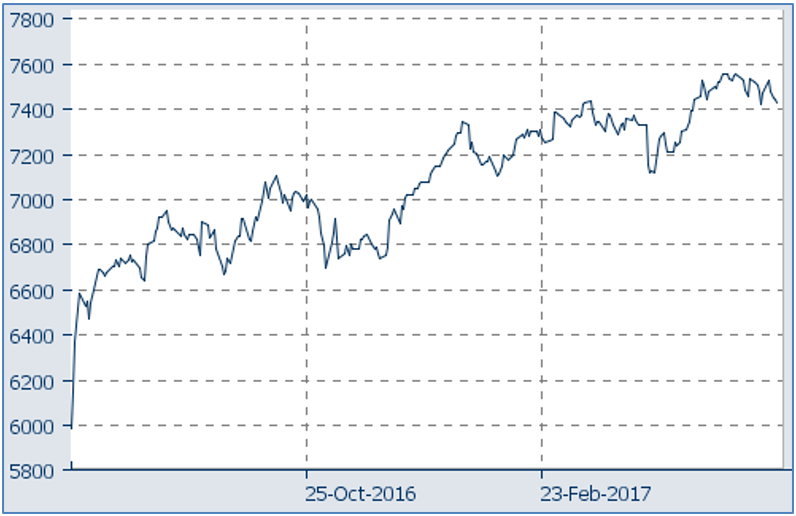The UK’s stock market has risen 25% since Brexit

Twelve months ago, contrary to most expectations, the UK voted to leave the European Union. At the time it was generally described as a victory for populist politics and an economic disaster for the UK. The Financial Times wrote:
“The fall in sterling, the slide in stock markets and the freeze in investment are all indications that the short-term impact will be serious.”
Likewise, The Economist newspaper forecast a slump in domestic demand would pull the UK into recession and the loss of hundreds of thousands of jobs would see a rise in unemployment. So far, they are both very wrong, and the whole episode has been a great lesson for investors.
GDP growth in the UK to the end of the March quarter 2017 was 2% per annum. Whilst it’s hardly knocking the ball out of the park, there are very few developed economies that are and it’s a long way from recession.
Meanwhile unemployment hit a 42 year low of 4.6% and at 2.9% inflation is at a level many central banks would kill for. Not that the financial markets appear to be worried by that given the 10 year bond yield is a smidge above 1%.
After very grim forecasts for the UK stock market, in fact the FTSE100 has risen more than 25% over the past year. Over that year the pound Sterling has done what floating currencies are supposed to: by falling from U.S.$1.34 in late June to U.S.$1.21 by early October it made the UK’s exports about 10% cheaper, underpinning an increase in exports by roughly the same amount. It’s now settled back at U.S.$1.27.
As an investor if your crystal ball had have been working and given you the heads up of the referendum result a week out, and you had sold everything in anticipation of what many of the main stream pundits had forecast, 12 months on you’d have been looking and feeling pretty dumb. Likewise with the U.S. election result.
Making those kinds of calls as an amateur investor is really hard. For the pros, they will typically hedge their positions and have stop-losses in place so they don’t get torched. The investing lesson is: there’s a lot of noise in financial markets that is best ignored and a well diversified portfolio really is one of the few free lunches in investing.
The UK government has now triggered Article 50 to exit from the EU and the really hard work has only just begun. Nobody knows what the future holds, and it usually pays not to try to guess.





